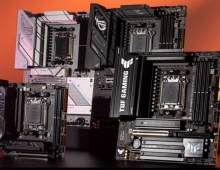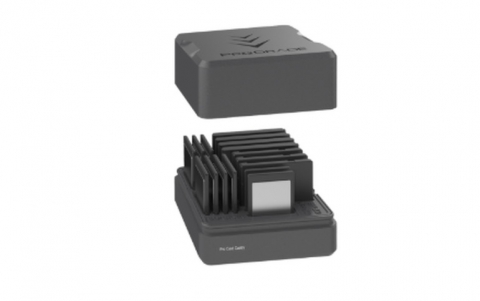
Intel Turns To Fashionable Wearables With Collaboration With Fossil Group
Intel is going to collaborate with the Fossil Group, a company that specializes in consumer lifestyle and accessories, to further develop wearable technology for the fashion industry. Intel and Fossil will work together to combine Intel’s technologies with Fossil’s design capabilities for future, as yet unannounced, products. Its global brand, retail presence and distribution capabilities will be a key factor in this collaboration.
In addition, Fossil Group will work with Intel Capital, Intel’s global investment organization, to identify and evaluate co-investments in emerging technologies.
"We think it’s important to look at the wearable market beyond a simple device that is smart and connected, beyond even the silicon inside. There is a tremendous opportunity to engage in partnerships across an entirely new ecosystem of players outside of Intel’s traditional business areas, and that’s what we’re doing," said Michael A. Bell, corporate vice president and general manager of the New Devices Group for Intel. "We want to produce the best platforms for wearables and have people build devices that show how technology can bring people together make their lives better," he added.
Bell said we should expect more "unique" partnerships.
Intel has already partnered with SMS Audio to bring the earbuds to market this year. And earlier this week, the company revealed MICA – a new fashion-oriented bracelet with communications functions designed with Opening Ceremony and available later this year.
Intal has also also acquired Basis, a young company that develops health and wellness tracking wearables.
IDF around the corner
Intel is expectd to showcase more wearables, robots and smart electronics and also talk about chips for mobile device, PCs and servers at its developer forum next week.
Intel plans to give updates on Edison, the SD-card sized development board used by makers to develop wearables and low-power electronics. Intel will explore development opportunities around Arduino, a popular hardware and software development kit, for Galileo, a developer board for robots, drones and home appliances.
Of course, Intel will also talk about its mobile chips, whhich are used in just a handful of tablets and smartphones.
Sofia, the company's first smartphone chip with an integrated 3G modem, is expected to be a highlight of that session.
The company may also showcase tablets based on Intel's latest Atom chip code-named Cherry Trail, which are expected to become available later this year. Cherry Trail will succeed the current Bay Trail batch of chips.
Intel will also talk about software development for the Android 64-bit OS code-named L.
Earlier today, Intel announced its new Core M processor, but is expected to sepeak about more Broadwell chips for laptops and desktops at IDF.
IDF will also be the place we should hear about the new Xeon E5-2600 v3 server chips code-named Grantley-EP, based on the Haswell architecture, Grantley-EP will replace the E5-2600 v2 chips code-named Romley. Servers based on Grantley-EP will support the new DDR4 memory.





















